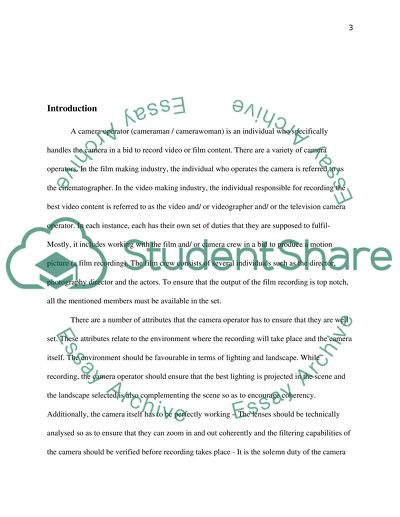Cite this document
(“Financial Issues Affecting Freelance Camera Operators: Essay”, n.d.)
Financial Issues Affecting Freelance Camera Operators: Essay. Retrieved from https://studentshare.org/visual-arts-film-studies/1623919-financial-issues-affecting-freelance-camera-operators
Financial Issues Affecting Freelance Camera Operators: Essay. Retrieved from https://studentshare.org/visual-arts-film-studies/1623919-financial-issues-affecting-freelance-camera-operators
(Financial Issues Affecting Freelance Camera Operators: Essay)
Financial Issues Affecting Freelance Camera Operators: Essay. https://studentshare.org/visual-arts-film-studies/1623919-financial-issues-affecting-freelance-camera-operators.
Financial Issues Affecting Freelance Camera Operators: Essay. https://studentshare.org/visual-arts-film-studies/1623919-financial-issues-affecting-freelance-camera-operators.
“Financial Issues Affecting Freelance Camera Operators: Essay”, n.d. https://studentshare.org/visual-arts-film-studies/1623919-financial-issues-affecting-freelance-camera-operators.


